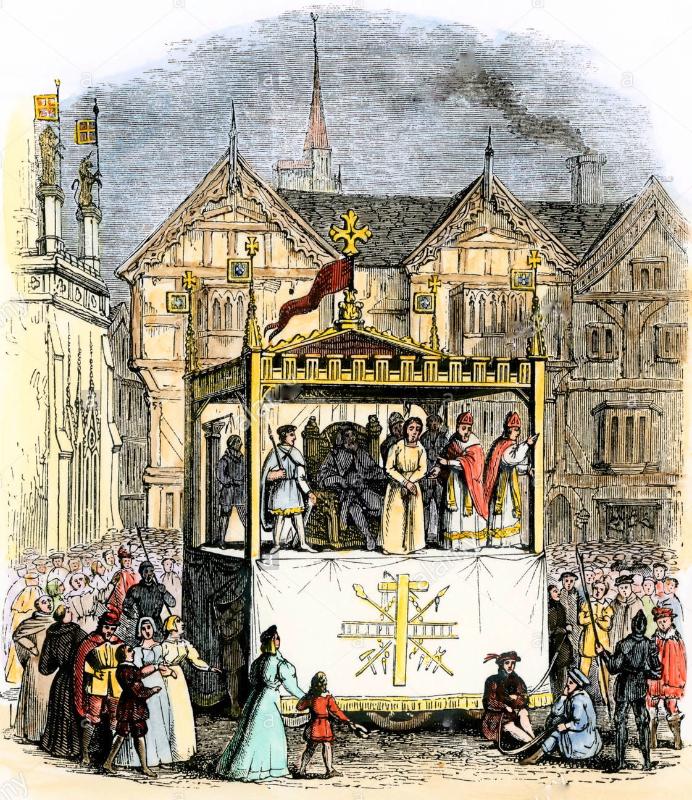Coventry Mystery Plays (partially found scripts for plays; 1392-1579)
Conventry Mystery Plays was a series of mystery plays that were performed in the English city of Coventry from around 1392 until the plays were suppressed in 1579. Each play would have ten cycles and each cycle would depict various scenes from the Bible. While mystery plays were performed in other English cities such as York, Chester, and Wakefield, the Coventry Mystery Plays were different in that they would depict scenes from the New Testament, whereas other cities would depict scenes from the Old Testament of the Bible. One manuscript from the cycle named Shearmen and Tailors' Pageant was translated and published and is the only cycle of the ten cycles from the Coventry Mystery Plays that survives today.
Background
As the Northern Crusades and Recognista military campaigns were wrapping up, public appearing for Christianity was as popular as ever before. Many people wanted to showcase and publicly portray scenes in the Bible. In England, mystery plays were put on by various guilds. They were called mystery plays as they took the mysteries of God as the primary theme and aimed to show, in the course of a day, the whole history of the universe from the creation of Heaven and Earth to the Last Judgement. As the mystery plays were performed by guilds, it also gave a way to promote the guild's ability of craftsmanship and would also attempt to recruit people into these guilds. Mystery plays were also mobile and were performed on separate wagons. Many of the guilds would also not take these plays too seriously and made often serious biblical passages come off as more comedic.[1]
Coventry Mystery Plays
As the 14th century progressed, the performance of the mystery plays in various central English cities also progressed. The first mention of the mystery play being performed in Coventry was in 1392 when the Drapers' Company performed Doomsday in which it was performed in a little tenement. Mystery plays in Coventry were usually performed on the Feast of Corpus Christi, which fell on the Thursday after Trinity Sunday and marked the completion of the sacrifice to Christ. While other English cities performed Mystery Plays, the plays put on in Coventry were known to be very lavish and even had monarchs come and see these performances.[2]
As the English Reformation saught, the Church of England tried to distance itself from Rome, and did not observe the Feast of Corpus Christi. As such, the scripts for the plays were suppressed and many of the scripts were destroyed.
Influence
It is not entirely known, but it is heavily theorized that William Shakespeare may have witnessed the Coventry Mystery Plays and may have inspired his work.
References
- ↑ An article that talks about Mystery Plays. Retrieved 09 May '19
- ↑ An article that talks about Coventry Mystery Plays. Retrieved 09 May '19
